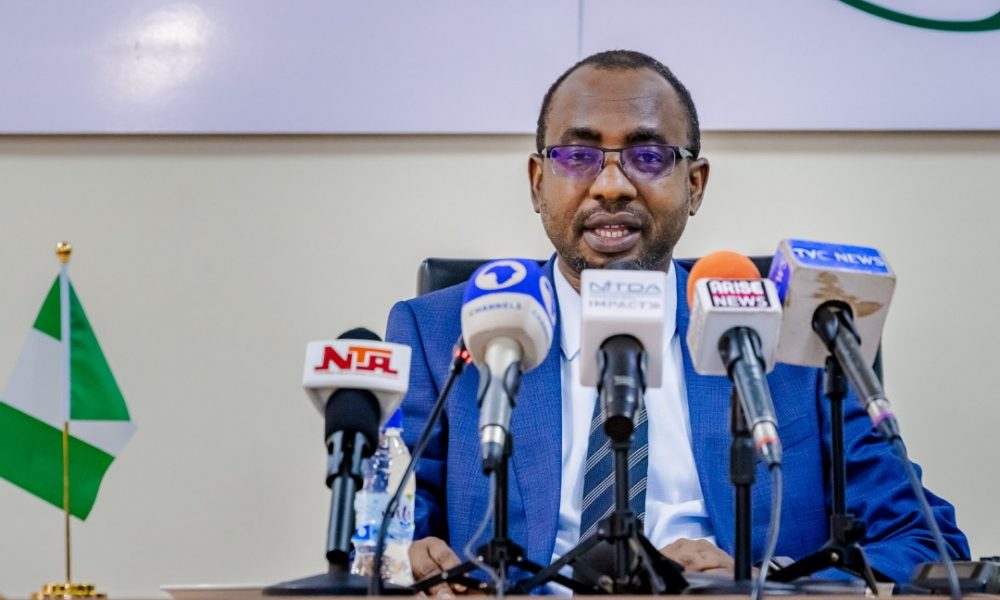From Adanna Nnamani, Abuja
The Director General of the National Information Technology Development Agency (NITDA), Kashifu Abdullahi, has disclosed that the country currently faces a staggering 90.6 per cent cybersecurity workforce gap, with only 25,760 professionals available to protect a population of over 220 million.
Abdullahi said the country needs at least 275,000 cybersecurity professionals to meet global standards, based on a benchmark of one cybersecurity expert per 800 citizens. However, Nigeria’s current ratio stands at one expert to every 8,000 people, far below the global average.
The alarming gap was disclosed at the opening of a two-day National Cybersecurity Conference in Abuja on Tuesday, where key stakeholders from government, the private sector, academia, and international organisations gathered to chart a path for building cyber resilience.
Abdullahi explained that the shortage of skilled personnel poses a major threat to the country’s digital economy, national security, and critical infrastructure, especially as cyberattacks become increasingly sophisticated and frequent.
He said the conference, which attracted over 175 participating organisations, including government agencies, private sector companies, and international organisations, among others, aims to foster collaboration and accelerate national efforts to close the cybersecurity skills gap.
The NITDA DG said the agency has developed an eight-pillar strategic roadmap aligned with the Renewed Hope Agenda of President Bola Ahmed Tinubu. The pillars include fostering digital literacy and cultivating tech talent, building a robust research ecosystem in emerging technologies such as AI, blockchain, and robotics, and strengthening policy and legal frameworks to support cybersecurity efforts.
Other focus areas include promoting inclusive access to digital infrastructure, enhancing digital trust, nurturing innovation and entrepreneurship, forging strategic partnerships, and improving technology-driven public service delivery.
He noted that one of the most pressing concerns is the severe shortage of skilled cybersecurity professionals, both globally and in Nigeria.
The DG cited the World Economic Forum and ISC², which stated that the global economy needs 10.5 million cybersecurity experts, but only 5.5 million are currently available.
To address the challenge, Abdullahi said the agency is implementing key programmes, including the National Digital Literacy Framework and the 3 Million Tech Talent initiative, aimed at building local capacity and equipping Nigerians with skills to secure the digital space.
He also stressed the need to shift the national focus from cybersecurity protection to resilience by building systems that can anticipate, detect, and respond to threats while ensuring continuity of services.
The event is also expected to showcase cybersecurity innovations and best practices while encouraging investment in local solutions. Awards will be given to outstanding individuals, institutions, and companies for contributions to cybersecurity leadership, research, and policy development.
Abdullahi further disclosed that the Office of the National Security Adviser had secured presidential approval designating IT systems as critical national infrastructure, with the National Assembly currently reviewing the Cybersecurity Act to strengthen legal protections.
“This is not just a conference, this is a movement for us to build our national cyber security resilience for our future and the future is digital,” he said.
“Our vision is to make Nigeria a digitally empowered nation, fostering an inclusive economic growth through technological innovation.
“Cybersecurity is about humans. Based on World Economic Forum, more than 95 per cent of cyber breaches are as a result of human errors. Therefore, our first line of defense is human.
“Resilience is about thinking, anticipating. One day the bad guys will get in. When they get in, how can we protect? How can we detect that they are in? How can we deter them away? And how can we respond and make sure business continuity and our services are entered? That is what resilience is all about.
“Cybersecurity will help achieve resilience in isolation. We need to work as a team, as an ecosystem to build resilience,” he said.


